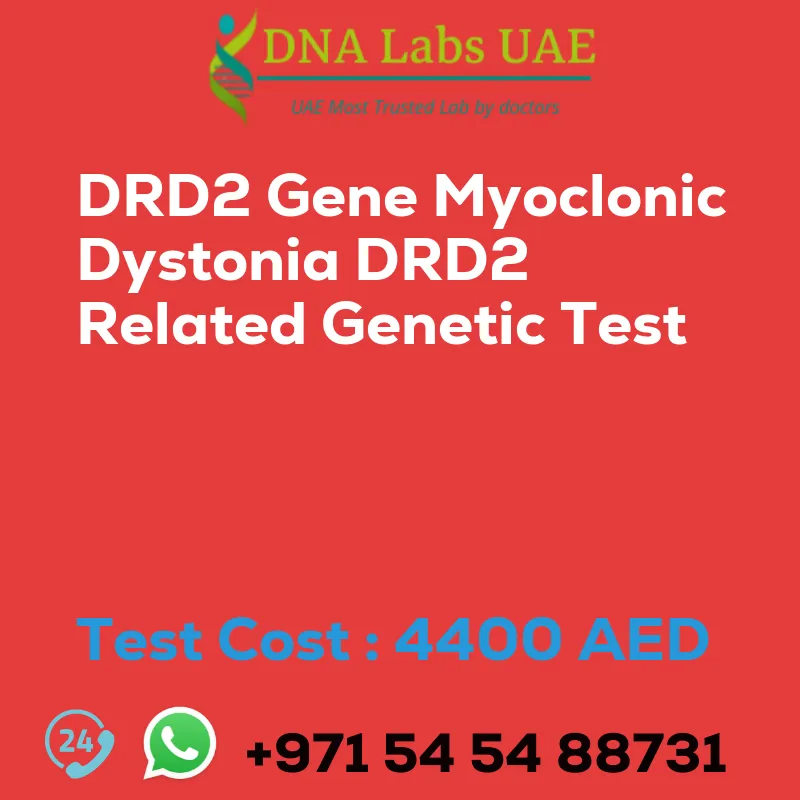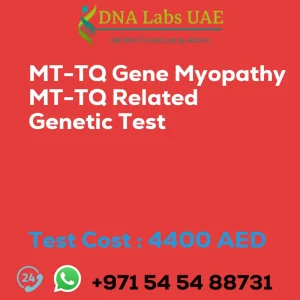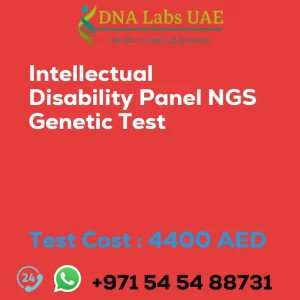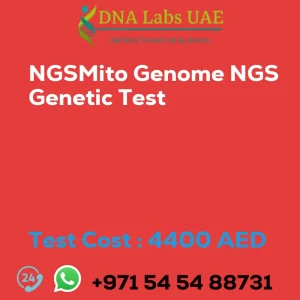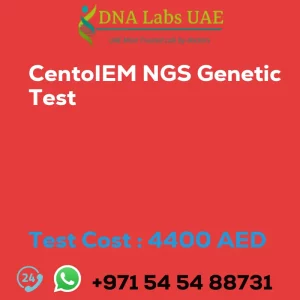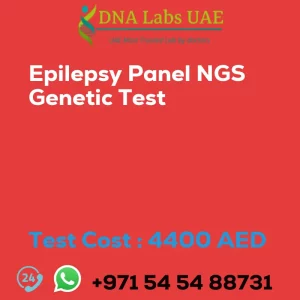DRD2 Gene Myoclonic Dystonia DRD2 Related Genetic Test
Test Name: DRD2 Gene Myoclonic dystonia DRD2 related Genetic Test
Components:
- Price: 4400.0 AED
- Sample Condition: Blood or Extracted DNA or One drop Blood on FTA Card
- Report Delivery: 3 to 4 Weeks
- Method: NGS Technology
- Test Type: Neurological Disorders
- Doctor: Neurologist
- Test Department: Genetics
Pre Test Information:
Clinical History of Patient who is going for DRD2 Gene Myoclonic dystonia, DRD2 related NGS Genetic DNA Test
A Genetic Counselling session to draw a pedigree chart of family members affected with DRD2 Gene Myoclonic dystonia, DRD2 related
Test Details:
The DRD2 gene, also known as the dopamine receptor D2 gene, is associated with a condition called myoclonic dystonia. Myoclonic dystonia is a movement disorder characterized by sudden, brief muscle contractions (myoclonus) and dystonia, which is the sustained muscle contractions causing abnormal postures or repetitive movements.
A DRD2-related NGS genetic test is a genetic test that uses next-generation sequencing (NGS) technology to analyze the DRD2 gene for any genetic variations or mutations that may be associated with myoclonic dystonia. This test can help in diagnosing individuals with myoclonic dystonia and determining the underlying cause of the condition.
NGS technology allows for the simultaneous analysis of multiple genes or the entire genome, providing a comprehensive view of the genetic variations in the DRD2 gene. This can help identify specific mutations or variations that may be responsible for the development of myoclonic dystonia.
Genetic testing for myoclonic dystonia can be useful for individuals with symptoms suggestive of the condition, as it can provide a definitive diagnosis and guide treatment decisions. It can also be beneficial for family members of affected individuals, as it can help identify carriers of the genetic mutation and provide information about the risk of developing the condition.
It is important to note that genetic testing for myoclonic dystonia should be performed and interpreted by a qualified healthcare professional, such as a geneticist or genetic counselor, who can provide appropriate counseling and guidance based on the results.
| Test Name | DRD2 Gene Myoclonic dystonia DRD2 related Genetic Test |
|---|---|
| Components | |
| Price | 4400.0 AED |
| Sample Condition | Blood or Extracted DNA or One drop Blood on FTA Card o |
| Report Delivery | 3 to 4 Weeks |
| Method | NGS Technology |
| Test type | Neurological Disorders |
| Doctor | Neurologist |
| Test Department: | Genetics |
| Pre Test Information | Clinical History of Patient who is going for DRD2 Gene Myoclonic dystonia, DRD2 related NGS Genetic DNA Test A Genetic Counselling session to draw a pedigree chart of family members affected with DRD2 Gene Myoclonic dystonia, DRD2 related |
| Test Details |
The DRD2 gene, also known as the dopamine receptor D2 gene, is associated with a condition called myoclonic dystonia. Myoclonic dystonia is a movement disorder characterized by sudden, brief muscle contractions (myoclonus) and dystonia, which is the sustained muscle contractions causing abnormal postures or repetitive movements. A DRD2-related NGS genetic test is a genetic test that uses next-generation sequencing (NGS) technology to analyze the DRD2 gene for any genetic variations or mutations that may be associated with myoclonic dystonia. This test can help in diagnosing individuals with myoclonic dystonia and determining the underlying cause of the condition. NGS technology allows for the simultaneous analysis of multiple genes or the entire genome, providing a comprehensive view of the genetic variations in the DRD2 gene. This can help identify specific mutations or variations that may be responsible for the development of myoclonic dystonia. Genetic testing for myoclonic dystonia can be useful for individuals with symptoms suggestive of the condition, as it can provide a definitive diagnosis and guide treatment decisions. It can also be beneficial for family members of affected individuals, as it can help identify carriers of the genetic mutation and provide information about the risk of developing the condition. It is important to note that genetic testing for myoclonic dystonia should be performed and interpreted by a qualified healthcare professional, such as a geneticist or genetic counselor, who can provide appropriate counseling and guidance based on the results. |

